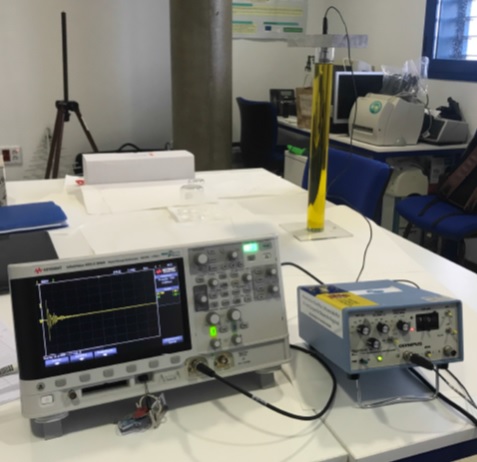
Novel technique developed in our laboratories for non-destructive ultrasound inspection of
edible vegetable oils. In summary, this technique enables a given oil to be characterised acoustically by yielding its “acoustic DNA”, which makes that oil unique and different from any other. Thus, it facilitates the detection of possible fraudulent practices such as the adulteration of extra virgin olive oil by cheaper oils (olive pomace, corn, soya, sunflower…).
The oil characterisation and fraud detection are conducted through a non-destructive technique, meaning that no properties (physical, chemical, organoleptic, or any other) of the oil inspected are ever altered. This means that after ultrasound inspection, the oil can continue its conventional process of manufacture and/or commercialisation.
This is a technique that can clearly be carried over to the oil sector at any of its stages, from production at presses up to commercialisation at warehouses and food distribution chains.
It is also directed at protected designation of origin ("DOP") bodies and industries desiring to characterise their products.
The characterisation technique for edible vegetable oils employed offers four advantages:
1. The technique is non-destructive, as stated above as the main feature.
2. The technique is chemically green and does not generate waste, thus obviating later investments of time and money to process this.
3. It is also an affordable technique that is easy to use and automate, and it can provide results in real time.
4. It is a portable technique, so that if desired, the equipment can be carried anywhere to perform the testing.

Status of the technology:
Laboratory tested
Area:
Agri-food
Information:
To get in touch with the people in charge of this offer, please contact FUNDECYT-PCTEx by email: transferencia@fundecyt-pctex.es
